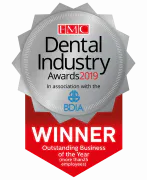Orthodontics is the area of dentistry concerned with the growth of the teeth, jaws and face.
The purpose of orthodontic treatment is to make the best of your teeth. This includes allowing you to bite correctly, eat more comfortably, and to care for your teeth and gums more easily. And your smile will benefit, too. Common conditions requiring orthodontic treatment are:
The ideal age to have orthodontic treatment is around 12 or 13, while you're still growing. The opportunity for improvement in an adult is more limited and surgery is more likely to be needed.
Treatment usually lasts from 18 months to 2 years, during which visits to St Martins Dental & Implant Clinic are needed every 4 to 6 weeks.
There are many different types of braces. Some are removable, which you take out at night, to eat a meal, or clean. Some are fixed and stay in all the time. NHS braces are made of metal, but at St Martins Dental & Implant Clinic we offer clear braces for private treatments- which use clear ceramic brackets, so you can hardly see them on your teeth.
Following completion of your course of treatment, you will be required to wear a retainer for a number of hours a day or at night, to ensure your teeth remain in their new position. Your St Martins Dental & Implant Clinic dentist will advise you of how long you need to wear your retainer for on completion of your treatment.
Orthodontics usually works very well, but it's important to look after your teeth while you're wearing braces. Braces can trap food and cause more plaque to build up than usual.
You need to take extra care cleaning your teeth and watch what you eat – for example, by avoiding sugary foods and drinks. You also need to see your dentist regularly while having orthodontic treatment.
Read more about looking after your teeth while wearing braces.
To book an initial consultation and find out more about the options available at St Martins Dental & Implant Clinic in Hereford call us on 01432 265 613.
Orthodontics
Why are my teeth not straight?
There are many causes of overcrowding, gaps and crooked teeth. For some people it can be inherited or possibly acquired, either due to a habit (sucking of the thumb, prolonged use of a dummy), or because of the premature loss of milk teeth or adult teeth.
Orthodontics
What will the impact of orthodontic treatment be?
Orthodontic problems can have a profound impact on a person and their social and professional life. Depending on the extent of a problem, you might even be too self-conscious to smile. Effective orthodontic treatment not only improves your appearance, but also goes a long way to improving your self-confidence.
Orthodontics
What is a retainer?
Retainers are fitted at the end of orthodontic treatment after the braces are removed. Retainers are designed to minimise unwanted movement of teeth after orthodontic alignment ie. relapse. Retainers normally need to be worn indefinitely, as long as you want your teeth to remain straight. Retainers can be either removable or fixed onto the teeth and there are different types of retainers. The choice of retainer is affected by a number of different factors and your orthodontist will explain which retainer is best for you. Sometimes you will be recommended to wear more than one type of retainer to reduce the chances of relapse.
Orthodontics
Should teeth be straightened for health reasons?
The correction of poor dental positioning also improves oral hygiene, as crowded or crooked teeth are often hard to clean properly. With such an improvement, the risk of gum disease for example – which can result in loss of teeth in extreme cases – is prevented.
Next steps
If you're ready to book a consultation, get in touch today.
Plans and fees
Spread the cost of your treatment with our finance options. Rates start from just 0% APR.
Portman Dental Care Awards





